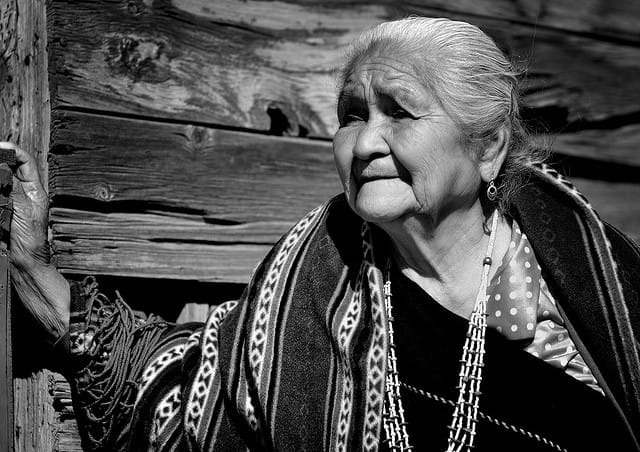I was born and raised in St. Pete, Florida and knew nothing about my culture growing up. However, after I started college at the University of Florida I began to learn about my cultural heritages: Muscogee Creek Nation and the Euchee Tribe of Indians. I first spent college summers in Oklahoma and after I graduated I lived there for three years. I learned a lot during that time. I still remember a few medicinal plants, plenty of songs, and what a snag is. Aye 😄. However, what struck me the most about indigenous culture was the way in which leadership conducted themselves. It was quite different from what I was accustom to seeing in western society. I want to describe what these differences are and maybe you can apply some of these teachings to your own leadership style.
Be Resilient 😂
When you think of the word resilient what comes to mind? Strong? Adaptable? Persistent? Then you might be surprised that in my community resilience is interchangeable with laughter.
Short history lesson: The Muscogee and Euchee people originally lived in the southeastern part of Turtle Island. Around the 1830’s, then President Andrew Jackson and the US government passed the Indian Removal Act and forcibly moved tribal nations to Oklahoma. Known as the Trail of Tears, it caused the removed tribal nations to lose up to one-quarter of their populations. Around the late 1800s, the federal government passed the Dawes Act, splitting up families in Oklahoma by placing them on 160 acres of land each. Shortly thereafter, US government programs began taking tribal children to boarding schools under the mantra: “Kill the Indian, save the man.” In the 1950s the US adopted a policy of termination and intimidated tribal families to move to inner cities and away from their reservations. In the late 1960s, the American Indian Movement rose to prominence to address the many horrendous policies intended to eradicate indigenous communities and instead encouraged the US government to adopt a policy of self-determination.
Can you imagine going through generations of historical trauma and coming out the other end? These communities have and when I spend time with them I hear laughter all around me. People laugh so loud you can hear them a good half mile away. Seriously! These behaviors of resilience are manifested in other ways too. I attend a church called Pickett Prairie whenever I am back in Oklahoma. Their motto is: sûhûndA gOkûfA, n@yalAwE. This translates to: “Always forward, never back.” Even in the most difficult of times the community moved forward, past the difficulties of the past, living in the present, and laughing with joy. What incredible obstacles has your team had to overcome? Did those obstacles tear you all down or did they make you all stronger? Striving to be better or overcome your obstacles is great, but never lose sight of the joy that’s always in front of you.
Know Everyone’s Role 👩💻 👨🏫 👸 👨💼
When it comes to ceremonial life, the Chief is the usually the most knowledgeable person when it comes to understanding the intricate details of everyone’s role. If push came to shove, they could fill anyone’s role in order to help move the ceremony forward. Not only does the Chief use this knowledge to uphold the ceremony to its highest standard, but also to instill this understanding to other members. If this way of life is to continue, then it is imperative that this knowledge is shared and kept firmly in the hearts and minds of those who participate, not just in theirs alone. Leaders who have a deep knowledge of those they govern are more respected. But leaders who share their knowledge to help others are revered. Are you using your knowledge to help others grow or do you keep it to yourself? Do you know everyone’s role intimately or do you only know small details? When you get to the point where you know everyone’s role and can fulfill it, share your knowledge. This can only help to further the growth of everyone, including yourself.
If It Could Be Done Any Better… 🎯
I used to travel around with a Heles Hayv (Medicine Man) and we would attend various stomp dances throughout Oklahoma. Sometimes we would go to Stokes (Cherokee), Red Bird (Cherokee), Iron Post (Euchee), or Arbika (Muscogee). Sometimes after someone would lead a dance he would say, “If it could be done any better, I’d have to do it myself.” Leaders understand their role within the larger community. Even though they are the most knowledgeable, they don’t hold this over others to lift themselves up. Instead, they acknowledge that everyone is learning and appreciate the contributions everyone makes to the overall goals of the community. How are you recognizing the efforts of others? Do you appreciate and show support as others work to grow themselves personally and professionally? Be intentional and show others you value their work and not use their effort to solely lift up yourself.
Show Love ❤️
We work 40 plus hour work week sometimes and yet the ones we are closest to are the ones we would like to be furthest from. How can this be? Modern society is void of the type of love one would see in close-knit communities. Western society holds strong to the idea of individuality, to the extreme in many cases. As leaders, it is imperative we speak to the hearts of those around us. This means being vulnerable at times in order to see the employee across from you as a person. Only then can everyone begin to engage in meaningful work that takes place in the office and not just outside of it. Are you taking the time to humanize those you work with? Do you understand what motivates them or what is most meaningful to them in their life? Not understanding these details means you not only lose sight of who your employees are but who you are as a person. Acknowledging your coworker’s life will bring greater fulfillment to the lives everyone leads, whether in or out of the office.
Summary
You might be thinking at this point, “This is really hard!” Being a leader is difficult but is also one of the most rewarding roles. If you take it seriously and understand your role to be one that extends beyond the confines of the office, I think heeding this advice will help take your leadership skills to the next level. Now I am not the only one who has learned leadership skills from Tribal Elders. You have too!


